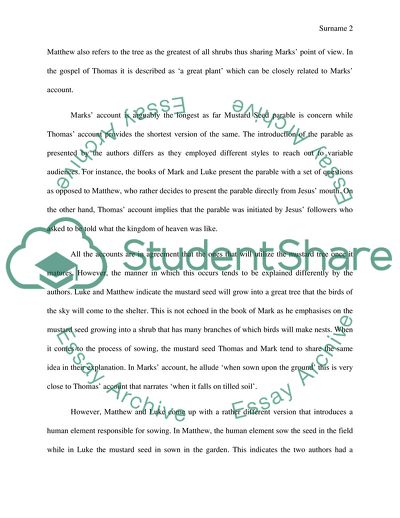Cite this document
(The Mustard Seed Essay Example | Topics and Well Written Essays - 1500 words, n.d.)
The Mustard Seed Essay Example | Topics and Well Written Essays - 1500 words. https://studentshare.org/religion-and-theology/1839843-the-new-testament-the-mustard-seed
The Mustard Seed Essay Example | Topics and Well Written Essays - 1500 words. https://studentshare.org/religion-and-theology/1839843-the-new-testament-the-mustard-seed
(The Mustard Seed Essay Example | Topics and Well Written Essays - 1500 Words)
The Mustard Seed Essay Example | Topics and Well Written Essays - 1500 Words. https://studentshare.org/religion-and-theology/1839843-the-new-testament-the-mustard-seed.
The Mustard Seed Essay Example | Topics and Well Written Essays - 1500 Words. https://studentshare.org/religion-and-theology/1839843-the-new-testament-the-mustard-seed.
“The Mustard Seed Essay Example | Topics and Well Written Essays - 1500 Words”. https://studentshare.org/religion-and-theology/1839843-the-new-testament-the-mustard-seed.


